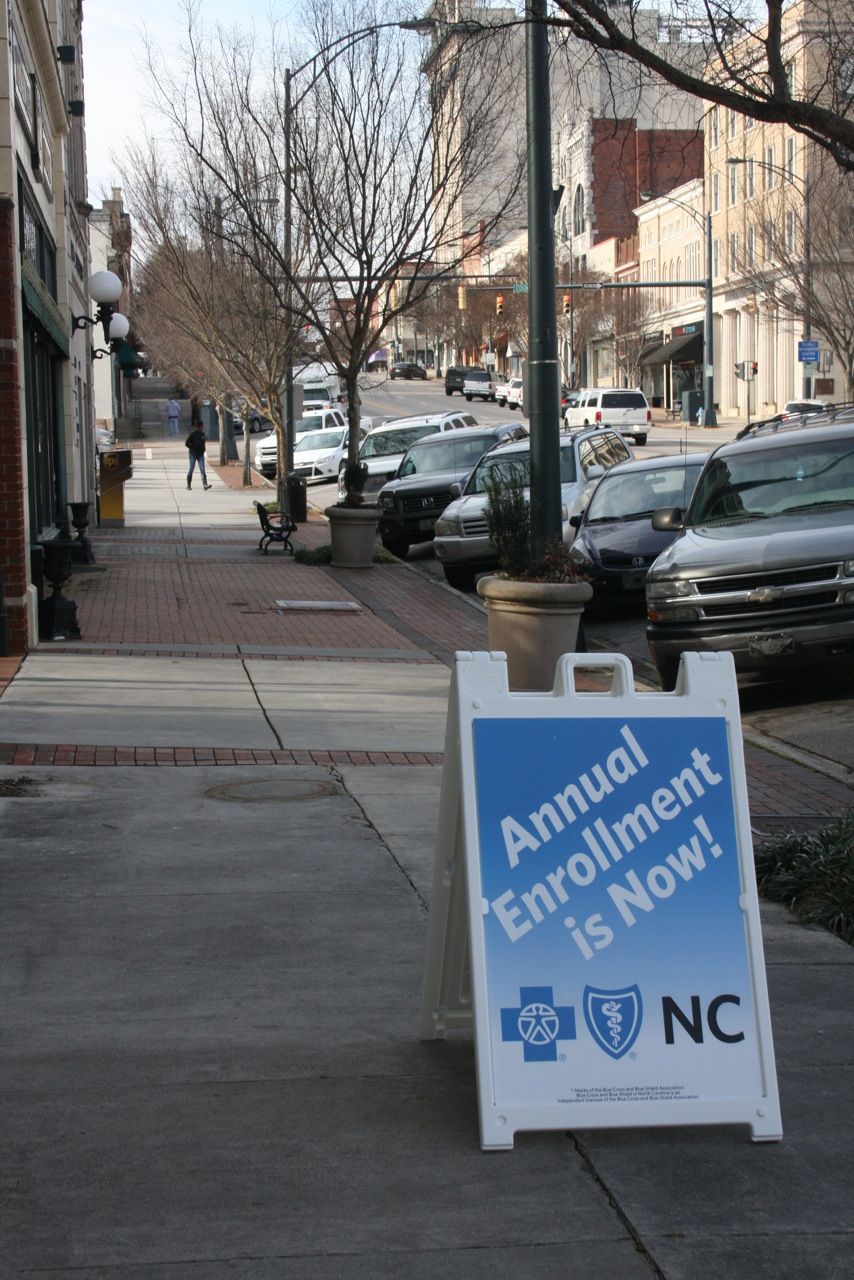Signing up for health coverage not biggest challenge now
Published 12:00 am Sunday, February 9, 2014
As the March 31 deadline for Affordable Care Act enrollment approaches, a look at Salisbury provides a snapshot of what’s happening with insurance agents all over the country. There have been snafus along the way, to be sure. And while local insurance agents say the sign-up system is now working well, the health-care system itself must be tweaked if it is to be sustainable.
“I’m pulling for it because I sell it,” says Will Harrell, an agent with Central Carolina Insurance Agency. “If it doesn’t work, scrap it and go back to the drawing board. We can’t go back to the way it was. We just can’t.”
Charlie Graeber agrees. Graeber, an insurance agent with Graeber & Associates, a New York Life Insurance Company, specializes in group insurance policies. But he is now selling a handful of subsidized health plans daily.
Many insurance agents are working with folks who have either never had health insurance, or haven’t had it in some time.
“It’s a life-changing thing when they see they have a quality policy, and they’ve gone so long without insurance,” Harrell says.
But the process has not been without its frustrations. Local insurance agents trained for months about ACA, but they could not have been prepared for all the problems that arose during the roll-out period.
“There’s so much we didn’t know,” says Meredith Horton, a Farm Bureau Insurance agent. “We’re still learning every day.”
One problem is that agents have been given conflicting information when they call into the insurance marketplace. Horton admits the level of frustration has left her in tears on at least one occasion.
At the beginning, sign-ups were taking several hours per client.
“It consumed our fourth quarter,” notes Dennis Rogers, another Farm Bureau agent.
Agents took to filling out the forms on paper and then calling in or inputting information into the system when it was available. Graeber says he knows of agents who worked at midnight or one in the morning just to be able to get online without being kicked off.
“Because North Carolina did not develop an exchange program, there’s really no reason for anybody to go on the exchange who’s not eligible for a subsidy,” Harrell says. “If you’re not eligible, you just go directly to Blue Cross Blue Shield.”
Harrell fans through a whole stack of insurance forms he’s processed. Since November, he says, the website has worked smoothly for him. Now, it takes about 20 to 25 minutes to enroll clients depending on the number of children they have.
“I’ve seen needy people getting the subsidy, which is great,” Graeber says. “But it’s a double-edged sword. If you don’t get the subsidy, your rates are going up.”
Graeber says this is especially true of clients who are married with no children. One client only made $25,000 a year, but his wife is a teacher.
“He could not get the subsidy when his income was combined with his wife’s income,” Graeber says.
Graeber has also found that young people are not signing up for ACA the way it was originally hoped. One 23-year-old decided to take a $950 penalty rather than paying a monthly premium.
“He didn’t see the value in it,” Graeber says. “When I became an agent in 1990, the first two products I bought were health insurance and disability insurance. My father worked in this business for 54 years, and it was instilled in me to do this. But the younger public doesn’t see the value in insurance. They’d rather pay for material things.”
Graeber notes that most of his new sign-ups are customers aged 48-50 who have not had insurance in a while or maybe have never had it.
Rogers and Horton, along with colleague Kenny Seagle, question the sustainability of ACA. These three agents have worked with clients who do not qualify for ACA, and refer them to the Community Care Clinic. In other cases, they’ve encouraged clients to get jobs to qualify for the subsidy. In Morton’s case, one client is a stay-at-home mom in her 40s. Another of her customers rents land for his income, but that income is below the federal poverty level.
Seagle worked with one couple whose insurance went from $1,200 to $1,800 per month. They’re both smokers, so they pay a surcharge. Yet they qualified for the subsidy, so now their total bill is $400 per month.
“That means the government is subsidizing $1,400 a month,” he says. “They’re even subsidizing a bad habit. It is not sustainable.”
Morton agrees. “It can’t continue like this. No.”
Rogers says, “There’s no doubt people need adequate health coverage. But there’s not enough being paid in to sustain the system. From a business perspective, we just can’t see how the plan can survive indefinitely.”
Meanwhile, Harrell is more optimistic.
“My theory is that if Blue Cross Blue Shield is getting all of this money that they’ve never received, the sheer numbers should have a positive impact,” he says. “These are sources of new income, so I feel like rates will level or go down. And hospitals will hopefully treat fewer uninsured.”
That’s another way to reduce health-care costs.
Graeber, too, believes ACA can work — with some changes.
“It is a path that can work, but it’s got to be tweaked,” he says. “Someone has to come up with a plan that’s going to work better than this is going to.”
Health-care costs must be better controlled, he explains.
“I don’t mind paying more into the system,” Graeber says, “but let’s fix the system. If you get a subsidy, you can call it ACA. If not, you can call it an increase in the traditional insurance plan.”
Dianna Wald also believes ACA will work. She is a certified navigator paid by ACA who will begin signing up clients at Community Care Clinic on Mondays starting Feb. 10.
“There have been cuts to Medicare and Medicaid, and ACA was set up to make money,” she says. “When it is up and running, it should generate $20 million a year. It is sustainable. It will actually save the government money.”
Still, Morton wonders if the system will even work for a year.
“I’m also concerned that the quality of health care will decrease,” she says. “My customers are happy now. It just was a long, hard, painful process.”
Freelance writer Susan Shinn lives in Salisbury.






